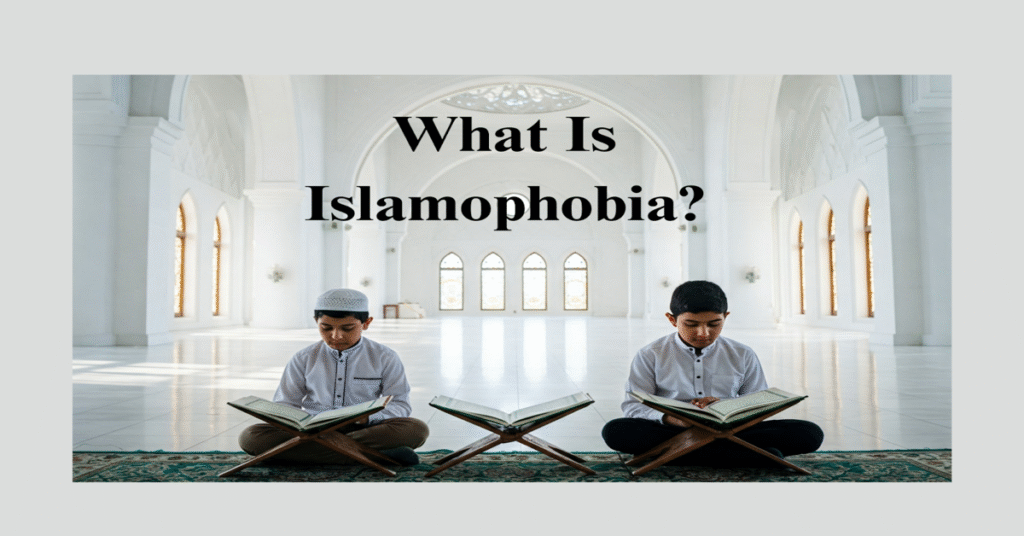In recent years, the claim that Sharia law aims to overtake Western legal systems has become a hot topic of political and ideological debate. Critics often argue that Sharia law in the West threatens liberal democracies, while many Muslims view it as a personal code of ethics derived from divine revelation. To understand the reality behind such claims, it’s essential to explore what Sharia law principles truly are and how they interact with Western legal frameworks.
What Is Sharia Law?
Sharia, meaning “the path to water,” is a moral and legal code derived from the Quran, the sayings of Prophet Muhammad ﷺ (Hadith), and Islamic jurisprudence (fiqh). It governs every aspect of a Muslim’s life—from daily routines to spiritual obligations, commerce, and family matters.
Unlike common or secular law, these principles are rooted in divine authority, which Muslims believe ensures justice, mercy, and accountability.
Quranic reference:
“Indeed, Allah commands justice, good conduct, and giving to relatives and forbids immorality and bad conduct and oppression.”
— (Qur’an 16:90)
Sharia vs Western Law: Is There a Clash?
The tension between these two arises mainly due to differing foundations. Western legal systems are primarily secular, evolving from Roman law, Enlightenment principles, and civil liberties. Sharia, on the other hand, bases its legitimacy on divine commandments.
However, both systems emphasize justice, fairness, and order. The claim that Sharia law Western legal systems are incompatible often stems from misunderstanding or politicization of Islamic jurisprudence.
Prophet Muhammad ﷺ said:
“The most beloved of people to Allah on the Day of Judgment will be the just leader.”
— (Sahih al-Jami, 7138)
This emphasizes that leadership and jurisdiction, in Islamic tradition, must serve justice—not power.
Is Sharia Jurisdiction Imposed in the West?
The presence of Sharia law in non-Muslim countries is often limited to personal matters like marriage, divorce, and inheritance. In the UK, for instance, Muslim arbitration tribunals handle civil cases—only when both parties consent.
These implementations are voluntary and function similarly to how Jewish or Christian courts operate for their communities. There is no evidence that these practices seek to override national constitutions or Western legal systems.
Refuting Sharia Law Misconceptions
Many Sharia law controversies arise from selective interpretations. Headlines often focus on punishments without understanding the full context, strict evidentiary requirements, or spiritual objectives behind such codes. This often gives rise to misconceptions that our law is inhumane or cruel, without understanding the truth and the context behind it.
For example, criminal law in Islam requires four eyewitnesses for adultery, making such punishments extremely rare. Additionally, forgiveness is highly encouraged in Islam.
“…But if someone pardons and makes reconciliation, his reward is [due] from Allah.”
— (Qur’an 42:40)
Thus, Islam always places emphasis on mercy and repentance before punishment.There are many misunderstood Sharia law facts that deserve clarification. For example, it’s a myth that the Qur’anic legal system only focuses on punishment—it actually covers charity, ethics, prayer, repentance and social justice more extensively than criminal codes.
The Harmony Between Islamic and Western Legal System
There are several overlaps between Islamic and Western legal systems:
- Property rights: Islam protects personal ownership and forbids unlawful seizure.
- Contracts: This Qur’anic legal system emphasizes fulfilling contracts and punishes fraud.
- Justice: Islamic teachings promote equal treatment, echoing democratic principles.
Where tensions arise—especially in secular law vs religious law—most Muslim communities choose personal observance without challenging state authority.
Islamic Law vs Western Law: Different Roots, Shared Goals
Islamic law vs Western law reflects more of a difference in origin than opposition in values. Islamic law is grounded in divine revelation and focuses on moral accountability before God. Western legal systems, by contrast, are built upon secular philosophies emphasizing civic duty and state authority. Despite these foundational differences, both legal traditions strive to maintain justice, uphold human dignity, and protect societal order. The gap narrows further when both systems prioritize fairness and reform over retribution.
Sharia Law in Non-Muslim Countries: Integration, Not Invasion
In non-Muslim countries,Qur’anic legal system is practiced privately by Muslims in accordance with national codes. For example:
- Indonesia applies Sharia in Aceh province for criminal and family matters.
- Nigeria allows Sharia courts in northern states for personal law.
- Western democracies permit Sharia-based mediation in civil disputes.
This reflects common law and Sharia coexisting—not competing.
Sharia Law in Modern Society: A Personal Code, Not a Political Threat
It is vital to distinguish between Sharia law in modern society and its politicized portrayal. For most Muslims, this sacred code is a personal path of righteousness. They follow dietary rules, pray five times a day, give charity, and observe fasting—all personal acts of devotion with no bearing on national legal systems.
The idea that the Qur’anic legal system aims to overhaul Western systems ignores the diversity of Muslim interpretations and lived experiences.
Justice in Islam: A Universal Ideal
One of the most universal concepts in both Islamic legal system and Western set of rulings is justice. Justice in Islam is considered a divine command, not merely a legal function.
“O believers! Stand firm for justice as witnesses for Allah even if it is against yourselves, your parents, or close relatives. Be they rich or poor, Allah is best to ensure their interests. So do not let your desires cause you to deviate ˹from justice˺. If you distort the testimony or refuse to give it, then ˹know that˺ Allah is certainly All-Aware of what you do.”
— (Qur’an 4:135)
This verse shows that Islamic justice is impartial and non-discriminatory—core ideals shared with democratic societies.
Conclusion
Rather than trying to overtake Western legal systems, Sharia law in the West operates as a voluntary, faith-based guide for Muslims. Claims of Islamic legal dominance are rooted more in fear than fact. Islamic legal system has coexisted peacefully with other traditions for centuries.
In truth, the Qur’anic legal system and Western codes can complement each other in pluralistic societies when framed around shared values like justice, fairness, and human dignity.
Frequently Asked Questions (FAQs)
No, Sharia is not intended to replace national laws in non-Muslim countries. It primarily guides personal religious practice and is voluntarily followed by Muslims in areas like worship, family matters, and ethical conduct. Some countries allow limited religious arbitration—similar to Jewish or Christian arbitration panels—particularly in civil matters like marriage or inheritance. However, national law remains supreme. While some classical Islamic texts include severe punishments, they come with extremely high evidentiary standards and emphasize deterrence, not cruelty. Islamic teachings prioritize mercy and repentance, and these rulings are rarely implemented in practice. Muslim communities generally seek to practice their faith privately within the framework of existing national laws. There is no widespread movement calling for religious law to replace secular governance. Justice in Islam is a divine command. It mandates fairness, equality, and accountability, regardless of race, religion, or social status. The Quran repeatedly emphasizes the importance of acting justly and bearing witness to truth. Much of the confusion comes from selective reporting, cultural biases, and lack of context. Media narratives often focus on extreme cases or misinterpretations, ignoring the broader ethical and spiritual foundation of Islamic law. Muslims strive to follow Sharia in their personal lives to the best of their ability, especially in spiritual and moral conduct. However, in non-Muslim countries, they are also religiously obliged to respect the laws of the land they live in. Is Sharia law meant to replace national legal systems in Western countries?
Are there any Western countries where Sharia law is officially recognized?
Does Islamic law support harsh punishments?
Can Muslims living in Western countries demand legal systems based on Sharia?
What does justice mean in Islam?
Why is Sharia often misunderstood in the media?
Are Muslims required to follow Sharia law completely?








